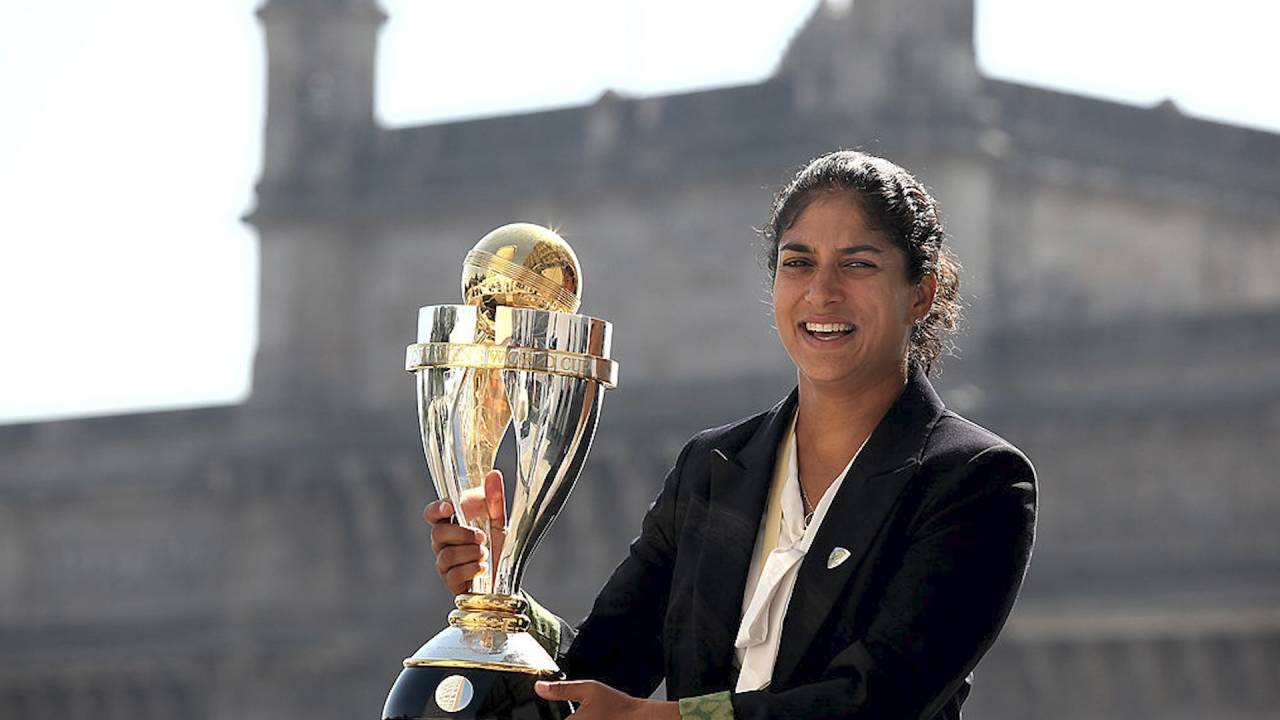Sthalekar: 'We want players to be able to shape what the future looks like'
FICA's new president also weighed in on the absence of a players' association for active cricketers in India
ESPNcricinfo staff
22-Jun-2022
Lisa Sthalekar, the newly appointed FICA president, wants players to have a bigger say in shaping what the future of cricket looks like.
The topic of cricket's future has been in the spotlight more than ever, following last week's IPL media rights auction, which netted the BCCI a record-breaking USD 6.2 billion (approx).
With the IPL set to grow apace, there is the danger of cricket's calendar having increasingly less space for bilateral international cricket. There have been contrasting opinions about this, ranging from that of former India coach Ravi Shastri, who wouldn't mind it if there was no bilateral T20 cricket, to that of the former Australia captain Ian Chappell, who is concerned that cricket's administrators are showing little concern about safeguarding the interests of longer-format cricket.
In an interview with ESPNcricinfo's Raunak Kapoor, Sthalekar accepted the growing popularity of T20 leagues, and suggested that whatever cricket's future may be, it should ideally reflect the views of the players.
"It [the scheduling] is something you've got to look at," she said. "I think you'd be silly to put your head in the sand and go, 'hey, with all these T20 leagues, how does bilateral cricket fit in?' And also, the relevance of bilateral cricket which is the main thing. They are decisions that happen around the ICC board level.
"At FICA, a body that represents major proportions of players at an international level, we'd like the players to have a say as well. and be able to shape what the future looks like. The players have always been an integral part of the game. It's what the fans turn up to see. They are the stars, not saying they have all of the answers.
"But certainly, I think they can provide an interesting insight and, hopefully, through myself, Tom Moffat, who's the CEO, Heath Mills, the chairman, and all of the other player associations, their CEOs, hopefully we can all play a role in ensuring that the future is bright because, at the end of the day, we want our sport to thrive, we want to be the world's No. 1 sport. How do we get there? There's going to be a few little bumps on the road. But I'm sure if we all put our heads together, we can achieve that goal."

Lisa Sthalekar: 'What is it like for those that don't make millions of dollars through cricket?'•Cricket Australia
While FICA represents a large chunk of professional cricketers globally, it does not include players from India. India's active cricketers, unlike those from most other major cricketing countries, do not have union representation, with the BCCI-recognised Indian Cricketers' Association only representing the interests of retired players.
Asked about this, Sthalekar hoped countries that don't have players' associations currently would create them in the future, particularly with the interests of cricketers in the game's grassroots in mind.
"When females first became part of the Australian Cricketers' Association (ACA), it actually had nothing to do with remuneration or salary dollars, it was nothing about that.
"It was about just ensuring that we had great conditions, be able to train and have the support network that we need, but also, more importantly as a cricketer, we are only in that profession for such a small period of time, and yet, we see in India, in Pakistan, in Australia, in England; people - boys and girls now - starting to put all their eggs in one basket. And only a small proportion get to actually achieve that goal.
"So, what is it like for those that don't make millions of dollars through cricket? There is a transition process and the players' association, from a welfare point of view, can make huge inroads anywhere in the world for any player. So that's why I think a players' association would be great to see in other countries that don't have it."
